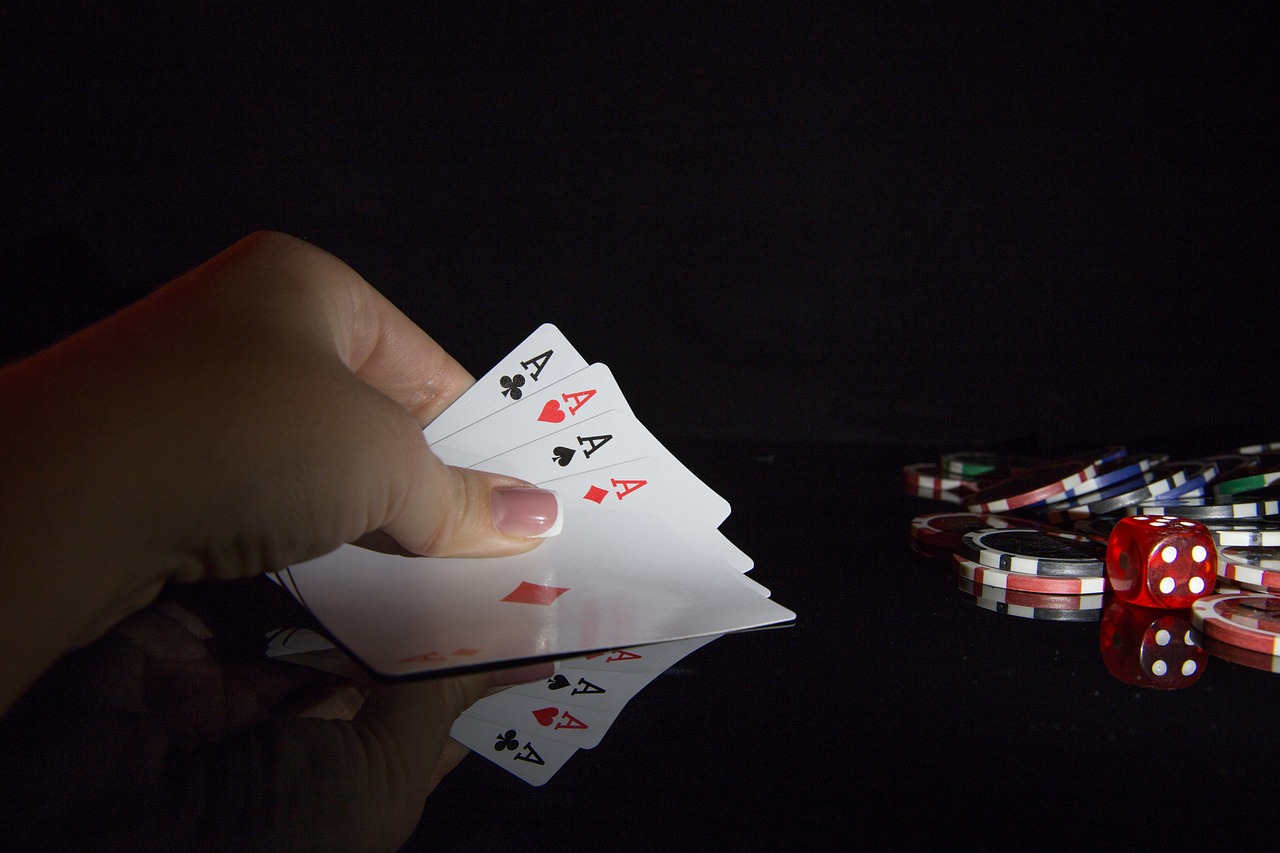Live Poker is a popular card game that is played in casinos and online platforms. In this game, the dealer plays a crucial role in ensuring that the game runs smoothly and fairly. The dealer is responsible for shuffling and dealing the cards, managing the bets, and announcing the winner of each hand. Additionally, the dealer uses various signals to communicate with the players and indicate the progress of the game. Understanding these signals is essential for players to follow the game and make informed decisions. In this article, we will discuss the role of the dealer in LivePoker and the importance of understanding their signals.
The Importance of Live Poker Dealer Signals in the Game
Understanding the signals of the dealer is essential for any player who wants to succeed in live poker. These signals can provide valuable information about the game and the other players at the table. For example, the way the dealer handles the cards can indicate whether a player is bluffing or has a strong hand. The dealer’s body language can also provide clues about the strength of a player’s hand.
One of the most important signals that a dealer can give is the way they deal the cards. A skilled dealer can control the flow of the game by dealing the cards in a certain way. For example, if a dealer is dealing quickly and efficiently, it can indicate that the game is moving quickly and that the players are focused and engaged. On the other hand, if a dealer is dealing slowly and deliberately, it can indicate that the game is slowing down and that the players are losing interest.
Another important signal that a dealer can give is the way they handle the chips. The way a dealer stacks and counts the chips can provide valuable information about the pot and the other players at the table. For example, if a dealer is stacking the chips in a certain way, it can indicate that a player has a large stack and is playing aggressively. On the other hand, if a dealer is counting the chips carefully, it can indicate that the pot is small and that the players are playing conservatively.
In addition to these signals, the dealer’s body language can also provide valuable information about the game. For example, if a dealer is leaning forward and paying close attention to the game, it can indicate that the players are engaged and that the game is intense. On the other hand, if a dealer is slouching and looking bored, it can indicate that the game is slow and that the players are losing interest.
Understanding the signals of the dealer is not only important for reading the other players at the table, but it is also important for communicating with the dealer. For example, if a player wants to make a bet, they can signal the dealer by placing their chips in a certain way. If a player wants to fold, they can signal the dealer by pushing their cards forward. By understanding these signals, players can communicate with the dealer without disrupting the flow of the game.
In conclusion, the role of the dealer in live poker is crucial, and understanding their signals is essential for any player who wants to succeed. The way a dealer handles the cards, stacks the chips, and communicates with the players can provide valuable information about the game and the other players at the table. By paying close attention to the signals of the dealer, players can gain an edge in the game and improve their chances of winning.
Understanding the Role of the Dealer in Live Poker
One of the most important aspects of live poker is the role of the dealer. The dealer is responsible for managing the game, dealing the cards, and ensuring that the game runs smoothly. In this article, we will explore the role of the dealer in live poker and help you understand their signals.
The dealer is the person who manages the game and ensures that the rules are followed. They are responsible for dealing the cards, managing the pot, and announcing the winner of each hand. The dealer is also responsible for managing the blinds and antes, which are the forced bets that players must make before the start of each hand.
In live poker, the dealer is an important part of the game. They are responsible for ensuring that the game runs smoothly and that all players have a fair chance of winning. The dealer must be knowledgeable about the rules of the game and must be able to make quick decisions when necessary.
One of the most important aspects of the dealer’s role in live poker is their signals. The dealer uses a variety of signals to communicate with the players and to manage the game. These signals include hand gestures, verbal cues, and the placement of chips.
For example, when the dealer is dealing the cards, they will use hand gestures to indicate which player is receiving the cards. They may also use verbal cues to announce the start of a new hand or to indicate when the betting round has ended.
The placement of chips is another important signal used by the dealer in live poker. The dealer will place chips in the pot to indicate the amount of money that is being bet. They may also use chips to indicate the size of the blinds or antes.
Understanding the dealer’s signals is important for all players in live poker. By understanding these signals, players can better manage their bets and make more informed decisions. It is also important for players to be respectful of the dealer and to follow their instructions.
In addition to managing the game and using signals, the dealer is also responsible for enforcing the rules of the game. If a player violates the rules, the dealer may issue a warning or even eject the player from the game. It is important for players to understand the rules of the game and to follow them at all times.
In conclusion, the role of the dealer in live poker is an important one. The dealer is responsible for managing the game, dealing the cards, and ensuring that the game runs smoothly. Understanding the dealer’s signals is important for all players in live poker, as it can help them make more informed decisions and manage their bets more effectively. It is also important for players to be respectful of the dealer and to follow the rules of the game at all times.
How to Read Live Poker Dealer Signals for Better Gameplay
The dealer is responsible for shuffling and dealing the cards, managing the pot, and enforcing the rules of the game. In addition to these responsibilities, the dealer also communicates with the players through a series of signals. Understanding these signals is crucial for players who want to improve their gameplay and increase their chances of winning.
The first signal that players should be aware of is the shuffle. The shuffle is the process of mixing the cards before dealing them. The dealer will shuffle the cards several times to ensure that they are thoroughly mixed. Players should pay attention to the way the dealer shuffles the cards. If the dealer shuffles the cards quickly and efficiently, it is a sign that they are experienced and confident. If the dealer shuffles the cards slowly or clumsily, it may be a sign that they are new to the game or inexperienced.
The second signal that players should be aware of is the deal. The deal is the process of distributing the cards to the players. The dealer will deal the cards one at a time, starting with the player to their left and moving clockwise around the table. Players should pay attention to the way the dealer deals the cards. If the dealer deals the cards quickly and accurately, it is a sign that they are experienced and confident. If the dealer deals the cards slowly or makes mistakes, it may be a sign that they are new to the game or inexperienced.
The third signal that players should be aware of is the pot. The pot is the amount of money that is at stake in the game. The dealer is responsible for managing the pot and ensuring that it is distributed correctly. Players should pay attention to the way the dealer manages the pot. If the dealer is efficient and accurate in managing the pot, it is a sign that they are experienced and confident. If the dealer makes mistakes or is slow in managing the pot, it may be a sign that they are new to the game or inexperienced.
The fourth signal that players should be aware of is the rules. The dealer is responsible for enforcing the rules of the game. Players should pay attention to the way the dealer enforces the rules. If the dealer is strict and consistent in enforcing the rules, it is a sign that they are experienced and confident. If the dealer is lenient or inconsistent in enforcing the rules, it may be a sign that they are new to the game or inexperienced.
In addition to these signals, players should also be aware of the dealer’s body language. The dealer’s body language can provide valuable information about the game. For example, if the dealer is tense or nervous, it may be a sign that the game is intense or that the dealer is under pressure. If the dealer is relaxed and confident, it may be a sign that the game is going well or that the dealer is experienced.
In conclusion, understanding the signals of the live poker dealer is crucial for players who want to improve their gameplay and increase their chances of winning. By paying attention to the way the dealer shuffles, deals, manages the pot, and enforces the rules, players can gain valuable insights into the game. In addition, by observing the dealer’s body language, players can gain a deeper understanding of the game and the players at the table. With practice and experience, players can become skilled at reading the signals of the live poker dealer and use this knowledge to their advantage.
Mastering Live Poker Dealer Signals: Tips and Tricks
The dealer is responsible for shuffling the deck of cards and dealing them to the players. They are also responsible for managing the pot, collecting bets, and distributing winnings. The dealer is the person who keeps the game moving and ensures that everyone follows the rules.
One of the most important things to understand about the dealer in live poker is their signals. The dealer uses a variety of signals to communicate with the players and to keep the game moving smoothly. These signals can include hand gestures, verbal cues, and even facial expressions.
One of the most common signals used by the dealer is the hand gesture. The dealer will use their hands to indicate when it is time for the players to place their bets, when the betting round is over, and when it is time to reveal the cards. The dealer may also use hand gestures to indicate when a player has folded or when a player has won the pot.
Verbal cues are also an important part of the dealer’s signals. The dealer will use their voice to announce the start of a new round, to indicate when the betting round is over, and to announce the winner of the pot. The dealer may also use their voice to remind players of the rules or to answer any questions that they may have.
Facial expressions are another important part of the dealer’s signals. The dealer’s facial expressions can indicate when they are happy with the way the game is going or when they are frustrated with a player’s behavior. The dealer’s facial expressions can also indicate when they are about to reveal the cards or when they are about to collect the bets.
Understanding the dealer’s signals is essential to mastering live poker. By understanding the signals, players can anticipate what the dealer is going to do next and can adjust their strategy accordingly. For example, if the dealer is indicating that it is time to place bets, players can start thinking about their next move and can prepare to make their bet.
There are also some tips and tricks that players can use to help them understand the dealer’s signals. One of the best ways to do this is to watch the dealer closely and to pay attention to their body language. Players should also listen carefully to the dealer’s voice and should try to anticipate what they are going to say next.
Another tip is to ask the dealer questions. If a player is unsure about a particular signal or rule, they should ask the dealer for clarification. The dealer is there to help the players and is always happy to answer any questions that they may have.
In conclusion, the role of the dealer in live poker is crucial, and understanding their signals is essential to mastering the game. The dealer uses a variety of signals to communicate with the players and to keep the game moving smoothly. By understanding the dealer’s signals, players can anticipate what the dealer is going to do next and can adjust their strategy accordingly. Players should watch the dealer closely, listen carefully to their voice, and ask questions if they are unsure about a particular signal or rule. With practice and patience, players can become experts at reading the dealer’s signals and can improve their chances of winning at live poker.
The Psychology Behind Live Poker Dealer Signals and How to Use Them to Your Advantage
The Role of the Dealer
The dealer is responsible for shuffling and dealing the cards, managing the pot, and enforcing the rules of the game. They are also responsible for announcing the action and keeping the game moving. In live poker, the dealer is a neutral party, and their role is to ensure that the game is fair and that all players have an equal chance of winning.
Understanding Dealer Signals
In live poker, the dealer’s signals can provide valuable information to players. For example, the way the dealer handles the cards can indicate the strength of their hand. If the dealer is taking their time to shuffle the cards, it could mean that they have a weak hand and are stalling for time. On the other hand, if the dealer is shuffling the cards quickly and confidently, it could mean that they have a strong hand and are eager to get the game started.
Another signal to look out for is the way the dealer deals the cards. If the dealer is dealing the cards quickly and efficiently, it could mean that they are confident in their hand and are trying to get the game moving. However, if the dealer is taking their time to deal the cards, it could mean that they are unsure of their hand and are trying to buy some time.
The dealer’s body language can also provide valuable information to players. For example, if the dealer is leaning forward and paying close attention to the action, it could mean that they have a strong hand and are interested in the outcome of the game. On the other hand, if the dealer is sitting back and not paying much attention, it could mean that they have a weak hand and are not invested in the outcome of the game.
Using Dealer Signals to Your Advantage
Understanding dealer signals can give players an edge in live poker. By paying close attention to the dealer’s actions and body language, players can gain valuable insights into the strength of their hand. For example, if the dealer is taking their time to shuffle the cards, it could mean that they have a weak hand and are stalling for time. This could be an opportunity for players to make a bold move and try to win the pot.
Similarly, if the dealer is dealing the cards quickly and efficiently, it could mean that they have a strong hand and are trying to get the game moving. This could be a signal for players to be cautious and not make any rash decisions. By understanding dealer signals, players can make more informed decisions and increase their chances of winning.
Conclusion
In live poker, the dealer is an essential part of the game, and their signals can provide valuable information to players. By understanding the psychology behind dealer signals, players can gain valuable insights into the strength of their hand and make more informed decisions. Whether you’re a seasoned pro or a beginner, paying close attention to the dealer’s actions and body language can give you an edge in live poker. So the next time you’re at the table, keep an eye on the dealer and use their signals to your advantage. In LivePoker, the dealer plays a crucial role in ensuring fair play and maintaining the flow of the game. Understanding their signals and actions is important for players to avoid confusion and make informed decisions. It is also important for dealers to be knowledgeable and skilled in their role to provide a positive gaming experience for all players.




